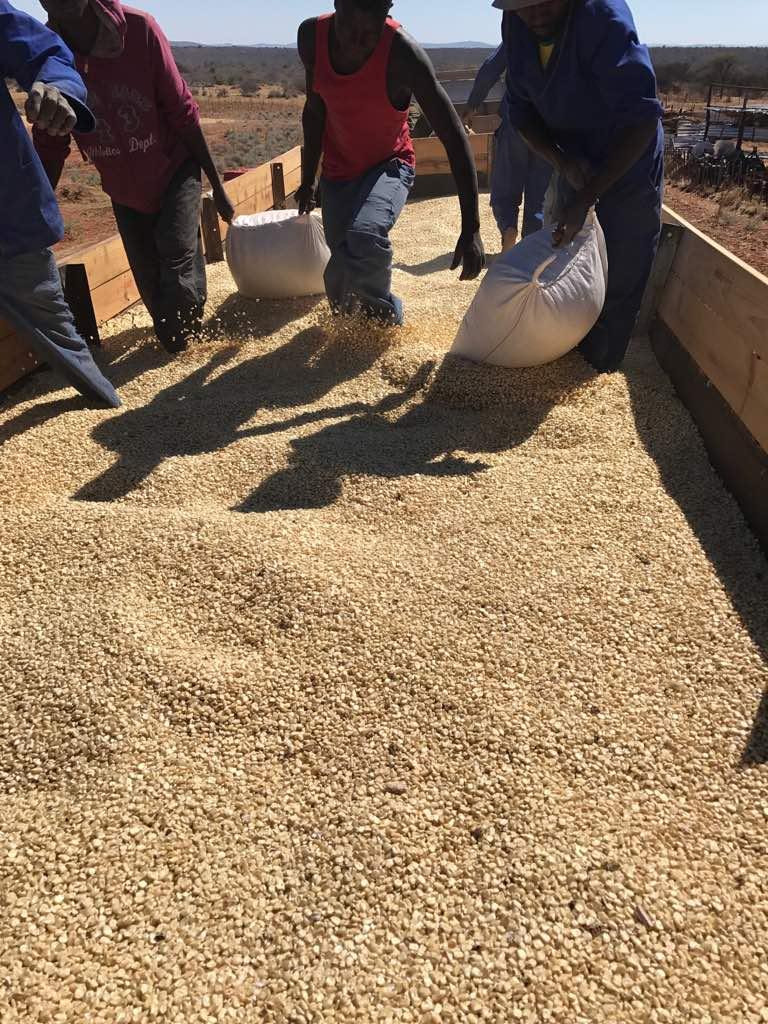Kavango partakes in hybrid maize trial
The hybrid maize will be tested out in dry land as well as under sprinkler irrigation.
MASHARE – The first hybrid maize trial demonstration between Namibia and Zimbabwe under Operation Werengendje took place at the Mashare Agriculture Development Institute locally this week.
The two countries decided to test different variations of maize seeds that can thrive in the current climate Namibia experiences.
Centre manager and chief agricultural scientific officer at the institute, Lukas Mandema, said the governor of the Kavango East region approached his office with a request for the land where the demonstration on the adaptability of the seeds can be done on a large scale.
Mandema said the delegation from Zimbabwe led by the minister of state for Mashonaland West provincial affairs, Mary Mliswa-Chikoka, brought one variety of maize to Namibia.
“We are now going to demonstrate this variety in two environments. In the one environment we will fertilise and plough and in the other environment we would be reaping,” he explained.
Passing on skills
He said they will also invite farmers at every stage in order for them to learn about these practices, while the Zimbabwean team will also be invited at a later stage to see how the demonstration is faring.
The centre manager said data will be collected from the time of planting and germination until harvesting to determine the yield per hectare.
The hybrid maize will be tested out in dry land as well as under sprinkler irrigation.
The delegation from Zimbabwe brought 200 kilogrammes of seeds to be planted on a 10-hectare plot.
“For food security, this variety is good as it takes 90 days to mature,” Mandema said.
Mliswa-Chikoka said the two countries are making a statement of intent to midwife the next generation that will come from farming.
“The seeds we are planting here today will transform the lives of many people,” she said. - Nampa
The two countries decided to test different variations of maize seeds that can thrive in the current climate Namibia experiences.
Centre manager and chief agricultural scientific officer at the institute, Lukas Mandema, said the governor of the Kavango East region approached his office with a request for the land where the demonstration on the adaptability of the seeds can be done on a large scale.
Mandema said the delegation from Zimbabwe led by the minister of state for Mashonaland West provincial affairs, Mary Mliswa-Chikoka, brought one variety of maize to Namibia.
“We are now going to demonstrate this variety in two environments. In the one environment we will fertilise and plough and in the other environment we would be reaping,” he explained.
Passing on skills
He said they will also invite farmers at every stage in order for them to learn about these practices, while the Zimbabwean team will also be invited at a later stage to see how the demonstration is faring.
The centre manager said data will be collected from the time of planting and germination until harvesting to determine the yield per hectare.
The hybrid maize will be tested out in dry land as well as under sprinkler irrigation.
The delegation from Zimbabwe brought 200 kilogrammes of seeds to be planted on a 10-hectare plot.
“For food security, this variety is good as it takes 90 days to mature,” Mandema said.
Mliswa-Chikoka said the two countries are making a statement of intent to midwife the next generation that will come from farming.
“The seeds we are planting here today will transform the lives of many people,” she said. - Nampa




Kommentaar
Republikein
Geen kommentaar is op hierdie artikel gelaat nie